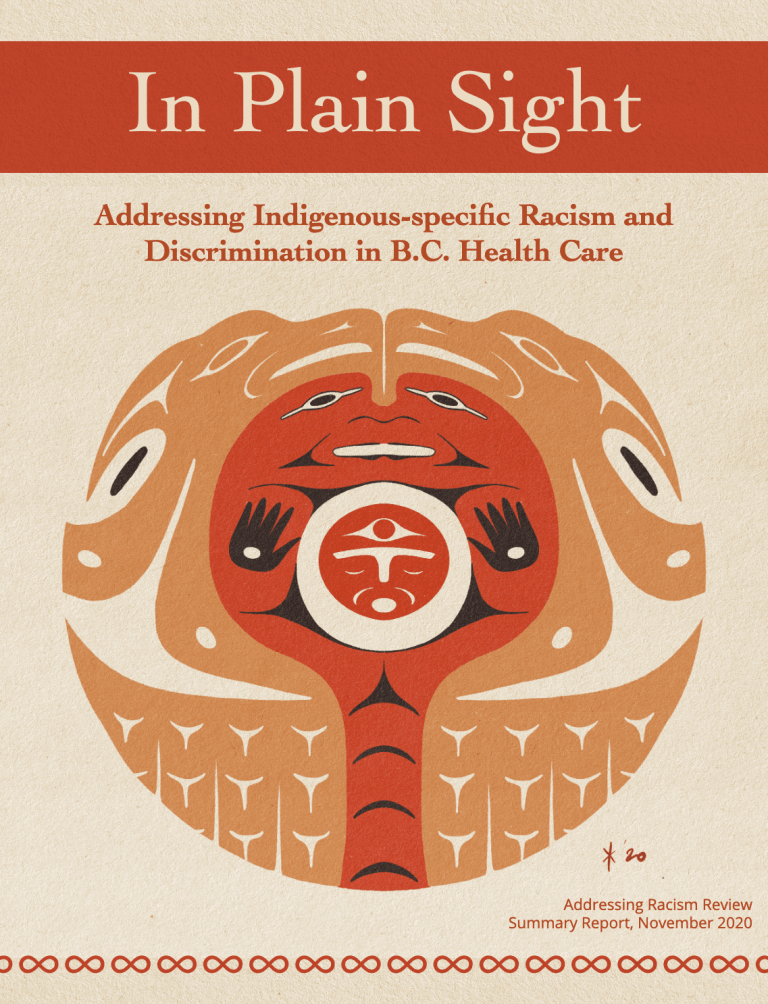14 search results
for
Indigenous rights and self-governance
Systems
Recommendation 2: That the B.C. government, in collaboration and cooperation with Indigenous peoples in B.C., develop appropriate policy foundations and implement legislative changes to require anti-racism and “hard-wire” cultural safety, including an Anti-Racism Act and other critical changes in existing laws, policies, regulations and practices, ensuring that this effort aligns with the UN Declaration as required by DRIPA.-
Category and theme:
Audience:
Groups affected:
Location of recommendation:
Systems
Recommendation 3: That the B.C. government, First Nations governing bodies and representative organizations, and MNBC jointly establish the position of B.C. Indigenous Health Officer with co-developed legislative recognition and authority in the Public Health Act, and a structured relationship with the Provincial Health Officer.-
Category and theme:
Audience:
Groups affected:
Location of recommendation:
Systems
Recommendation 4: That the B.C. government, First Nations governing bodies and representative organizations, and MNBC jointly establish the Office of the Indigenous Health Representative and Advocate with legislative recognition and authority to provide a single, accessible, supportive, adequately funded resource for early intervention and dispute resolution for Indigenous people who require assistance to navigate, fully benefit from, and to resolve problems within, B.C.’s health care system including all health authorities, regulatory colleges and other health providers. The position should be reviewed in five years after establishment to determine if it has been effective in rooting out racism in the health care system in B.C.-
Category and theme:
Audience:
Groups affected:
Location of recommendation:
Systems
Recommendation 5: That the B.C. government, First Nations governing bodies and representative organizations, and MNBC jointly develop a strategy to improve the patient complaint processes to address individual and systemic Indigenous-specific racism.-
Category and theme:
Audience:
Groups affected:
Location of recommendation:
Systems
Recommendation 6: That the parties to the bilateral and tripartite First Nations health plans and agreements work in co-operation with B.C. First Nations to establish expectations for addressing commitments in those agreements that have not been honoured, and for how those expectations will be met through renewed structures and agreements that are consistent with the implementation of DRIPA.-
Category and theme:
Audience:
Groups affected:
Location of recommendation:
Systems
Recommendation 7: That the Ministry of Health establish a structured senior level health relationship table with MNBC, and direct health authorities to enter into Letters of Understanding with MNBC and Métis Chartered Communities that establish a collaborative relationship with clear and measurable outcomes.-
Category and theme:
Audience:
Groups affected:
Location of recommendation:
Systems
Recommendation 9: That the B.C. government establish a system-wide measurement framework on Indigenous cultural safety, Indigenous rights to health and Indigenous-specific racism, and work with First Nations governing bodies and representative organizations, MNBC, the Indigenous Health Officer, and the Indigenous Health Representative and Advocate to ensure appropriate processes of Indigenous data governance are followed throughout required data acquisition, access, analysis and reporting.-
Category and theme:
Audience:
Groups affected:
Location of recommendation:
Behaviours
Recommendation 11: That the B.C. government continue efforts to strengthen employee “speak-up” culture throughout the entire health care system so employees can identify and disclose information relating to Indigenous specific racism or any other matter, by applying the Public Interest Disclosure Act (PIDA) to employees throughout the health care sector without further delay.-
Category and theme:
Audience:
Groups affected:
Location of recommendation:
Behaviours
Recommendation 14: That the B.C. government, PHSA, the five regional health authorities, B.C. colleges and universities with health programs, health regulators, and all health service organizations, providers and facilities recruit Indigenous individuals to senior positions to oversee and promote needed system change.-
Category and theme:
Audience:
Groups affected:
Location of recommendation:
Behaviours
Recommendation 15: That the B.C. government, First Nations governing bodies and representative organizations, MNBC, the Provincial Health Officer and the Indigenous Health Officer develop a robust Indigenous pandemic response planning structure that addresses jurisdictional issues that have arisen in the context of COVID-19, and which upholds the standards of the UN Declaration.-
Category and theme:
Audience:
Groups affected:
Location of recommendation:
